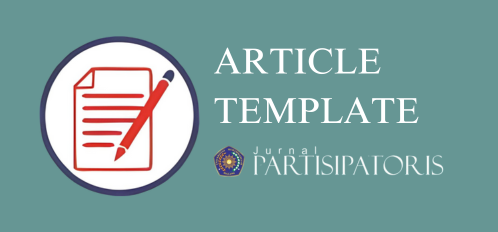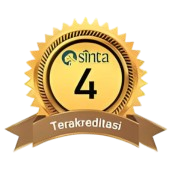Implikasi Wacana Kampanye Anti Kekerasan Seksual Terhadap Glorifikasi Pelaku Kejahatan Seksual Di Media Online
DOI:
https://doi.org/10.22219/jp.v3i2.18891Keywords:
critical discourse analysis, glorification, sex offender, anti-sexual violence discourse, online mediaAbstract
The spread of anti-sexual violence campaigns on social media such as the #metoo, #kitaAgni and #namabaikkampus movements raises public awareness about the issue. This can be seen in the rejection and public anger related to the news about the glorification of sex offenders who incidentally was a public figure when he was released from prison which was published in online media. Therefore, this article examines the implications of anti-sexual violence discourse on the glorification of sexual offenders in online media by using critical discourse analysis by Sara Mills which focuses on the position of subject-object and the position of readers in the news. This article shows that there is a discourse battle between the sex offenders who show resistance while the public continues to reject it simultaneously.
Downloads
References
Eriyanto. 20009. Analisis Wacana: Pengantar Analisis Teks Media. Yogyakarta. LKiS.
Adiyanto, Wiwid. 2020. Pemanfaatan Media Sosial Instagram Sebagai Ruang Diskusi Upaya Pencegahan Pelecehan Seksual di Lingkungan Akademis. Jurnal Ilmiah Pangabdhi 6/Oktober: 78-83.
Fatwati, Gina dan Rini Rinawati. 2021. Perempuan dan Kekerasan Seksual dalam Kampanye Komunitas Samahita. Prosiding Manajemen Komunikasi 7/Februari: 82-86.
Nafi’, Annisa Alivia dan Wahyu Kustiningsih. 2019. Kampanye Online: @indonesiafeminis dan @perempuanpeduli dalam Menyuarakan Isu Kekerasan Seksual terhadap Perempuan. Skripsi. Universitas Gadjah Mada.
https://metoomvmt.org/get-to-know-us/history-inception/ diakses pada 27 September 2021
https://www.republika.co.id/berita/q727lz414/harvey-weinstein-divonis-23-tahun-penjara diakses pada 27 September 2021
https://tirto.id/testimoni-kekerasan-seksual-174-penyintas-79-kampus-29-kota-dmTW diakses pada 27 September 2021
https://celebrity.okezone.com/read/2021/08/25/33/2461051/saipul-jamil-tak-dendam-ke-pria-muda-yang-membuatnya-masuk-penjara?page=3 diakses pada 25 September 2021
https://www.kompas.com/hype/read/2021/09/09/125737066/ketua-kpi-tegaskan-saipul-jamil-boleh-tampil-di-tv-hanya-untuk-kepentingan?page=all#page2 diakses pada 25 September 2021
https://www.tribunnews.com/seleb/2021/09/12/jemput-saipul-jamil-naik-porsche-beri-karangan-bunga-setelah-bebas-indah-sari-buka-suara diakses pada 25 September 2021
https://kumparan.com/kumparanhits/dikecam-karena-disambut-meriah-usai-bebas-saipul-jamil-beri-pembelaan-ini-1wTIwPuS22X diakses pada 25 September 2021
https://medan.tribunnews.com/2021/09/08/saipul-jamil-masih-banjir-kecaman-publik-sang-kakak-pasang-badan-tak-terima-dilabeli-pedofilia?page=2 diakses pada 25 September 2021
Downloads
Published
How to Cite
Issue
Section
License

This work is licensed under a Creative Commons Attribution-ShareAlike 4.0 International License.
Authors who publish with Jurnal Partisipatoris agree to the following terms:
- For all articles published in the Jurnal partisipatoris, copyright is retained by the authors. Authors give permission to the publisher to announce the work with conditions. When the manuscript is accepted for publication, the authors agree to the automatic transfer of non-exclusive publishing rights to the publisher.
- Authors retain copyright and grant the journal right of first publication with the work simultaneously licensed under a Creative Commons Attribution-ShareAlike 4.0 International License that allows others to share the work with an acknowledgment of the work's authorship and initial publication in this journal.
- Authors are able to enter into separate, additional contractual arrangements for the non-exclusive distribution of the journal's published version of the work (e.g., post it to an institutional repository or publish it in a book), with an acknowledgment of its initial publication in this journal.
- Authors are permitted and encouraged to post their work online (e.g., in institutional repositories or on their website) prior to and during the submission process, as it can lead to productive exchanges, as well as earlier and greater citation of published work (See The Effect of Open Access).











